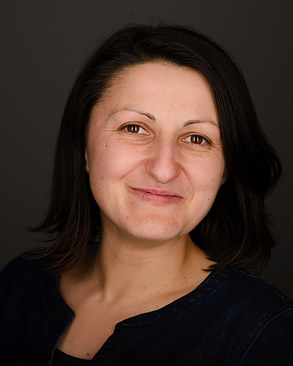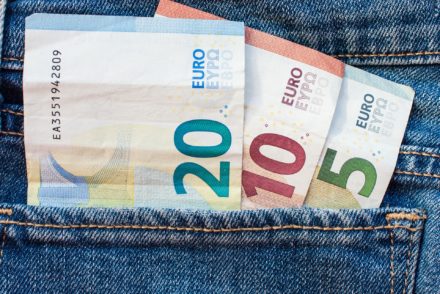Microdosing students wanted for Tilburg University study
Psychedelic drugs are making a comeback. But a spiritually awakening acid trip is not what today’s users are after—instead, they seek increased focus and productivity. Because much is still unknown about long-term effects, TiU-sociologist Ioana Pop is looking for students who are willing to share their experiences with microdosing these drugs.

Bron: YouTube/Drugslab
For proponents of microdosing, there’s no doubt about it: taking tiny amounts of psychedelic drugs, such as LSD or magic mushrooms, can make you more cheerful, creative, aware and focused. Anyone roaming the internet for more information about microdosing will likely come to the same conclusion. There are countless stories to be found of people who tried it and shared their experiences online, almost all of which are positive.
“There are the well-known stories of creatives who credit microdosing for their success in Silicon Valley,” researcher Ioana Pop says. “And there are also the stories of stock traders and bankers who claim it helps them cope with the pressures of working in finance, or mothers who are less affected by the stress of parenting.” All of this because of the regular use of small doses of psychedelics.
There are far less stories about the negative effects that psychedelic microdosing may have. “Perhaps people are less inclined to share those experiences online. But scientific studies, too, are often focused on the positive effects. If we want to adequately inform users about what they are taking, we need to do more research on positive as well as negative effects.”
The best version of yourself
People increasingly use psychedelics to grow and to stretch their talents to their limits, Pop says. “As a sociologist, I am interested in how the language of psychology is infiltrating deeper and deeper into society. How people are becoming more self-centered, striving towards things like ‘growing as a person’, ‘becoming a better you’, and ‘being the best version of yourself’. We live in a society where we can no longer accept that things are the way they are. We tend to think: I can change, I don’t have to settle for this, it can be turned into something even better.”
In those efforts to become a ‘best self’, tiny portions of LSD or psychedelic mushrooms are believed to be of help. And it’s all but a marginal phenomenon, the sociologist says. “There’s a serious lobby pushing for the legalization of psychedelics, and there is also a lot of scientific interest. People are even speaking of a psychedelic renaissance.”
“We tend to think: I can change, I don’t have to settle for this”
It sparked Pop’s curiosity. Is this phenomenon really so widespread? How many people are microdosing psychedelics, and what are their reasons and experiences? Her search for more information led her to studies about students who self-medicate to be able to deal with the pressures of student life and the anxiety that comes with impending exams.
“We already knew that students use substances such as ritalin and cannabis. The estimates vary, but we believe between 7 and 25 percent of students use substances to enhance their cognitive performance.”
Far less is known about students who microdose psychedelics. But there is no question that some do, Pop says. “It’s seen as a safer alternative to cannabis and amphetamines, with less unwanted side effects. Another reason for microdosing that students may have is that is doesn’t just produce a peak effect right before taking an exam or giving a presentation—because you continuously take small amounts, you can perform at your best throughout the entire semester.”
Wanted: students with microdosing experience
According to the online platform Microdosing.nl, the ideal microdosis of psychedelics allows you to feel the effects of the substance without interfering with your daily routine. That generally comes down to one tenth of the ‘normal’ dosage for recreative use.
Although psychedelic microdosing routines may vary somewhat, most users take a dose on day one. The effects can still be felt the next day. After a break of two to three days, the routine starts again.
When you start microdosing, don’t expect you’ll be having deep conversations with gnomes or experiencing a sense of all-encompassing love. According to the microdosing platform, the effects you’ll experience are more likely to be an increased sense of energy and clear-headedness, enhanced concentration or the sense of being more present in the current moment.
‘Potential negative side effects have not been extensively studied’
That may sound great—but, as mentioned before, potential negative side effects have not been extensively studied. In fact, much is still unknown about why people start microdosing, how they first come to try it, and where they get their substances and information from.
To shed more light on why and how people microdose, Ioana Pop and junior researcher Jannis Dinkelacker are looking for microdosing students. Some of the questions they are seeking to answer: how exactly does psychedelic microdosing work? How does it affect the workings of our brain and our emotions? Can it improve daily functioning? Are the effects reported by users real or placebo?
Pop also wants to find out whether the increasing popularity of microdosing is related to the increased pressure to perform that many students experience. “They strive for excellent grades, interesting internships, study abroad experiences, and all kinds of extracurricular activities on their résumés. A university degree alone doesn’t seem to be enough to land a good job in today’s competitive labor market. Is microdosing a way for students to deal with the pressures of always having to be ‘the best’ you can be?”
In search of answers
The study consists of two parts. Students are asked about their microdosing motives and experiences in one-hour interviews. In addition, they complete short app and computer tests and they fill out questionnaires that are primarily aimed at assessing memory and emotion. All in all, the study will run for a period of four weeks.
“It’s an observational study, which means we don’t intervene. So we are not looking for participants who would be willing to try microdosing for science—we’re looking for students who are already microdosing. In our call for participants, we also clearly state that will we not be supplying psychedelics.”
Pop hopes to find twenty Tilburg University students who are willing to participate in the study. “There’s still a lot of taboo regarding the use of psychedelics, but hopefully that will not keep students from signing up. We already have a number of participants, but we’re looking for more.”

Ioana Pop
The first interviews have already been conducted. Pop has noticed that, for most participants, the small payment they receive for participating in the study is not the most important reason for signup up. They are participating because they want to gain a better understanding of how microdosing affects them. For example, they want to know whether the effects are real or placebo, and whether they respond differently to tasks when they took a dose that day compared to rest days.
“When the research is completed, each participant receives a personalized report with their results. That will definitely give them some answers,” Pop explains.
Her own questions will probably not all be answered, Pop believes. “It’s a small-scale pilot study, which will hopefully fuel further and more extensive research in the future.”
One of the most striking observations Pop has made from her conversations with the first participants? Students have lots of different reasons for microdosing. Smiling, she adds: “But I can’t reveal too much about that until after the study has ended. I wouldn’t want to risk influencing any new participants!”
Students who are interested in participating in this study can contact Jannis Dinkelacker: J.Dinkelacker@uvt.nl






